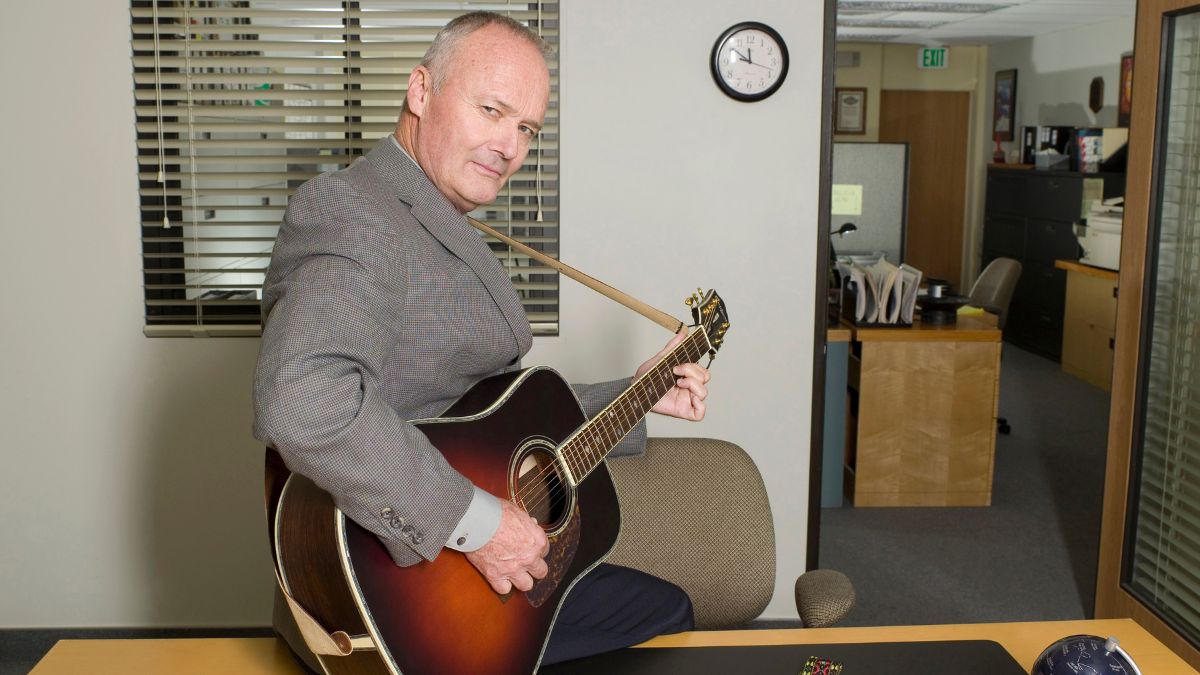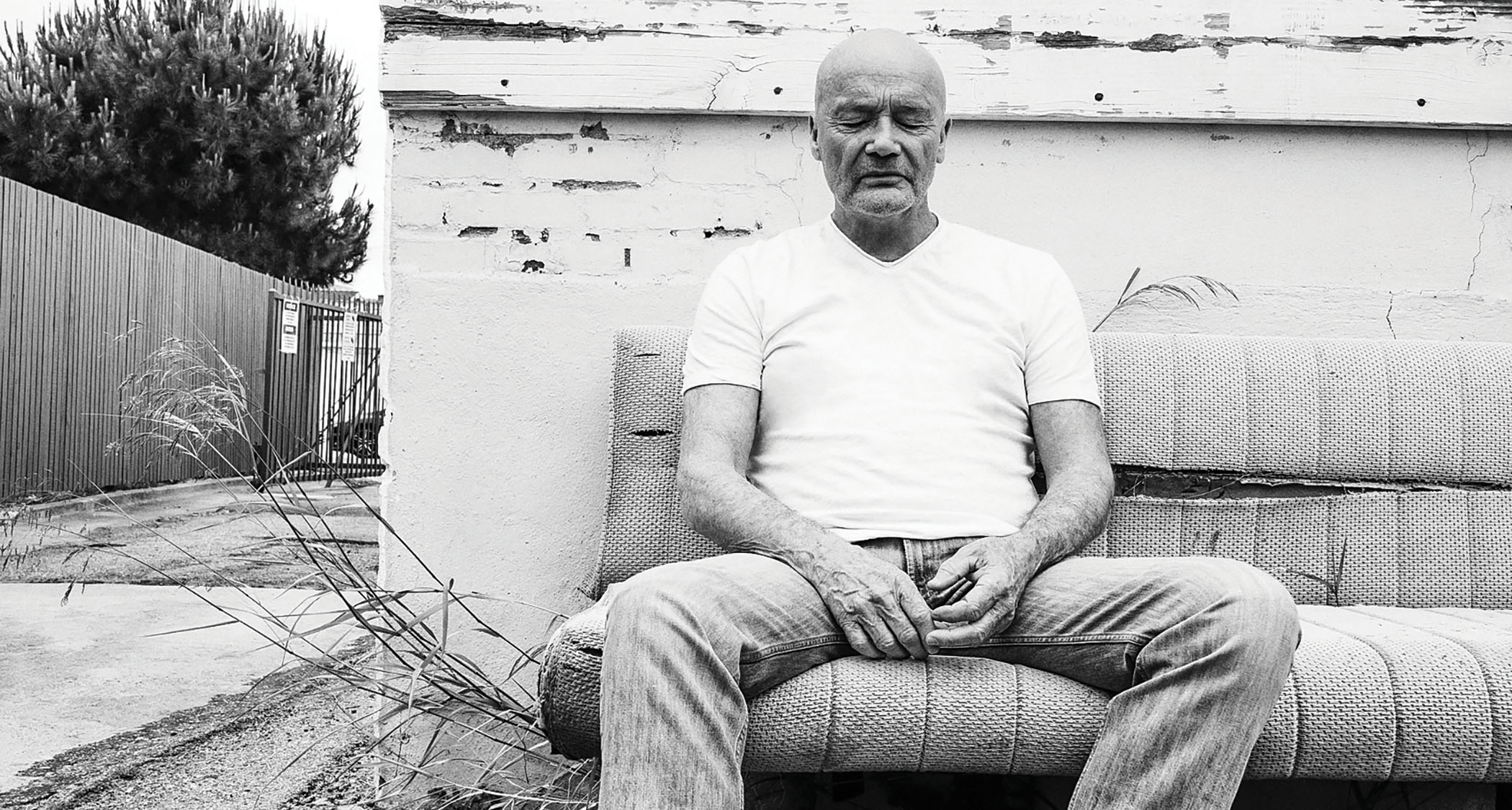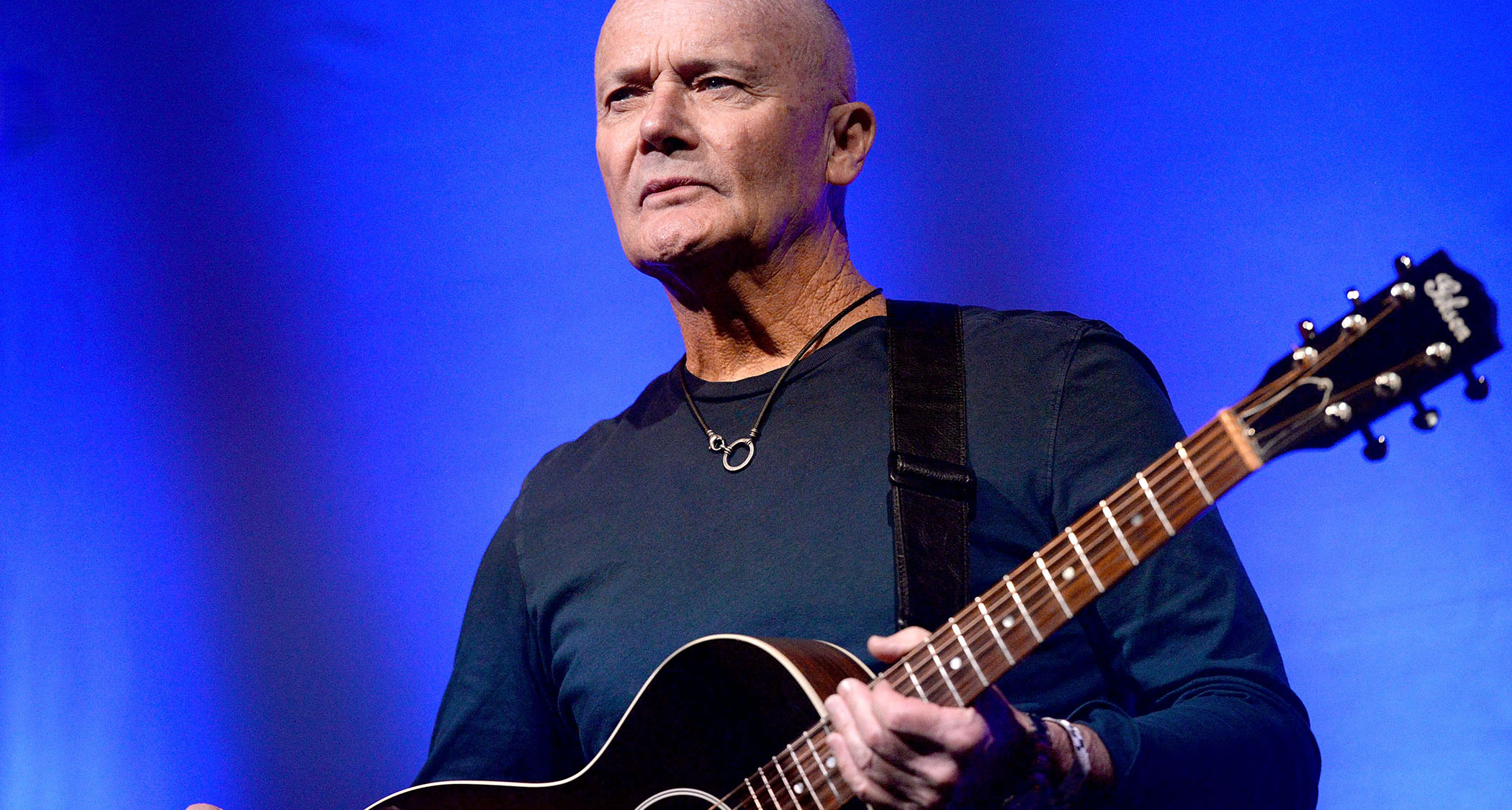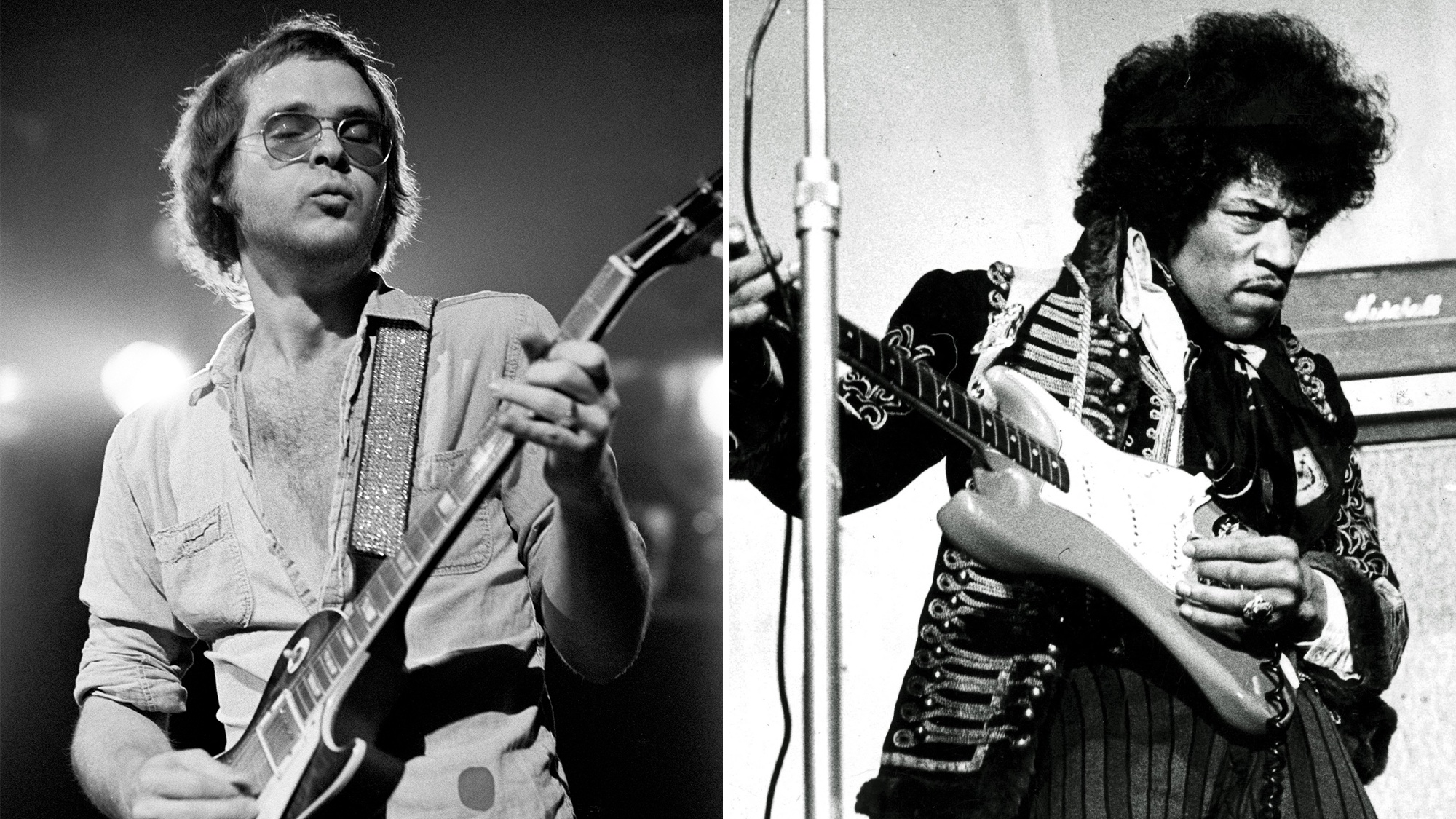“Once the show became a hit, people started going down the rabbit hole – ‘Oh my God! He really was in the Grass Roots!’” The life and times of Creed Bratton, from AM rock stardom to taking an Office job

As a member of the hit-making, late-’60s pop-rock group the Grass Roots, guitarist Creed Bratton lived the life of a king. But as he tells it, all that excess – the girls, the drugs, the girls – was nothing but hard work.
“Led Zeppelin were a bunch of pussies compared to us,” he says. “We partied like crazy. But see, I was an athlete. I was a swimmer in college. When we got successful with the Grass Roots, I became a reluctant rock star.
“I didn’t like getting high, but I had to do it. It was part of the deal, so I joined in. I’d wake up in the morning and go, ‘I gotta do drugs again today. I gotta throw a TV out the window again today.’ I didn’t want to, but I soldiered on.”
He pauses for effect, then laughs. “That’s my stage bit. Of course it was great! Are you kidding? It was the ’60s, the Summer of Love, and I was in a hit band. It was the absolute best! In a perfect world, all young men in their twenties would have experienced what I went through.”
For a while, it was smooth sailing. Bratton and his Grass Roots mates – singer-guitarist Warren Entner, singer-bassist Rob Grill and drummer Rick Coonce – ruled the charts with AM gems like Let’s Live for Today and Midnight Confessions, among others.
But by 1969, Bratton grew frustrated at the band’s musical direction, one guided by Dunhill Records staff producer-writers P.F. Sloan and Steve Barri. Not many people would split a successful band, but that’s exactly what Bratton did. As it turned out, he had a long view of the kind of career he wanted.
“The truth is, I studied drama in school, and I always planned on being an actor,” he says. “I played music to make money, and then the whole Grass Roots thing happened. Acting was always something I would pursue. It took a while for the whole thing to take off, but when it did, it went bigger than I could have imagined.”
All the latest guitar news, interviews, lessons, reviews, deals and more, direct to your inbox!
Bratton is referring to his most celebrated role in which he played a fictionalized version of himself on the smash NBC series The Office. During the show’s nine-season run, he earned multiple Screen Actors Guild Award nominations and amassed a whole new fanbase.
“It was pretty extraordinary,” he says. “Once the show became a hit, people started going down the rabbit hole – ‘Oh, my God! He really was in the Grass Roots!’”

He laughs. “I think the band might owe me some money for bringing them back into the limelight.” [An online search reveals a deleted scene from an episode titled Booze Cruise in which the guitarist’s character talks about his time with the Grass Roots and demonstrates some smoking blues chops.]
The financial windfall from The Office has enabled Bratton, now 82, to do pretty much whatever he wants, and while he continues to act, what he really wants to do is play music.
Since 2001, he’s recorded and released his own albums, and last year he issued his 10th studio set, Tao Pop, a delightful collection of originals that demonstrates his easygoing songcraft sensibility and fluid guitar skills.
“I’m a good guitarist, but I’ve got friends I can call up to play on my music, people like Dean Parks and Elliot Easton,” he says. “Of course, I’m going to call them. For me not to would be stupid. It would be arrogant.”
How did you start playing guitar?
“I grew up in a little town by Yosemite National Park. Actually, I started out as a horn player. I was first-chair trumpet in high school, but I was learning guitar, too. My grandfather had a Crest guitar – it was made by Harmony. He showed me some chords.
We weren’t the only ones using the Wrecking Crew. The Beach Boys, the Monkees, the Byrds – everybody used them. That’s how records were made back in the ’60s
“He had a country and western band, the Happy Timers. I loved that Western swing and Hank Williams. It just touched my heart. But I also heard Rumble by Link Wray. I heard the Lee Brothers, Fats Domino, Little Richard – all that stuff.
“I saved my money and sent away to Sears for a Silvertone. It had the lipstick pickups and the amp in the case. I already know a lot of chords, and when I plugged that guitar in, that was it. I was done. I figured out how to play the blues in a couple of weeks.
“By the time I was 17, I was playing with a bunch of guys who were in their twenties. I don’t know if I was a natural, but I could play lead guitar and I was considered pretty good. I traveled around and played music. When I got to L.A., I felt like I could hold my own with most people.”
Where did the Grass Roots figure into the whole ’60s L.A. scene? You weren’t quite part of the Laurel Canyon thing.
“We were a manufactured straight-pop group. I was living in Laurel Canyon, but we weren’t associated with it. We were on bills with groups like Paul Revere & the Raiders, Gary Puckett & the Union Gap, but we’d also play with Cream and Moby Grape, the Young Rascals, Steppenwolf, Three Dog Night. We played with everybody. I mean, we played with Buddy Rich!”
P.F. Sloan and Steve Barri pretty much controlled the group, right?
“We did whatever they told us to do musically. Warren and I played on the first couple of albums, but by the time we got to the third or fourth album, we’d be coming back from tours.
“The records were already being cut with the Wrecking Crew, who were obviously better musicians than us. We weren’t the only ones using the Wrecking Crew. The Beach Boys, the Monkees, the Byrds – everybody used them. That’s how records were made back in the ’60s.”
What was it like being on Dunhill Records at that time?
“Scary. They were scary and obviously didn’t pay you either. But everybody knows that. You can ask the Mamas and the Papas or Three Dog Night or Steppenwolf or anybody that was on Dunhill. That’s okay. We got our money from playing live. I had a wonderful time, and that’s just the way it was.”
What kind of guitars and amps did you use with the band?
“I started off with my Silvertone. I also had a Klira acoustic guitar I bought in Germany when I was doing a folk trio. When I got back to the States and the Grass Roots started up, I played a white Strat; actually, that was rented. Then I bought a ’60s Gibson 335 – nice guitar. I used that through a Vox Berkeley, but we used Fender amps, too.
“I bought a ’54 Les Paul. I think I put that through either a Princeton or a Twin Reverb. I turned that guitar all the way up. We didn’t have fuzz boxes or pedalboards. We plugged straight into the amp, and that’s the sound we got. We had a song called Hot Bright Lights, and I got a really gnarly, dirty sound out of that Gibson.”
There’s a clip of you guys playing Let’s Live for Today on a TV show in 1967. You played an Eko Barracuda stereo guitar.
Was I Django Reinhardt? No. Was I Stephen Stills? No. But there were a lot of guitar players who thought I was fine
“Horrible guitar! I never used it live. We had a deal with the company, so whenever we did TV, I had to use it. That was it. It wasn’t good at all.”
What kind of live band were you guys?
“We were a great bar band. We could get in there and kick ass, but we were more like entertainers. I’m not poo-pooing the idea of being entertainers; we were very good entertainers.
“Was I Django Reinhardt? No. Was I Stephen Stills? No. But there were a lot of guitar players who thought I was fine. When it all started leaning to horns and strings and things we couldn’t do on stage, that’s when I became frustrated.”
Did it bother you that the Wrecking Crew did the majority of playing on the band’s later records?
“I didn’t get myself concerned with it that much. I always felt as if there was this energy moving me along through life. It got me through school. Somehow this band thing came together. Things just appeared in my life. Whether it’s optimism or spiritual lunacy, I always felt like I’ve been watched over. My attitude was, ‘This is supposed to happen right now,’ so I took my settlement.
“I was living with my wife and baby daughter in Malibu Canyon. We stayed there for a good year. Then we went to Europe, and I wrote songs over there. I got to meet people like Bert Jansch and John Renbourn. Talk about an epiphany. Seeing Bert Jansch play… I was strumming with a pick, but seeing him play all over the neck with his fingers, that was a paradigm shift for me.
“Alternate tunings? I was gobsmacked. It changed my songwriting and my approach to playing the guitar. I saw Eric Clapton in ’65. Ridiculous. I had no idea you could get a sound like that out of a guitar. I almost threw my guitar away, but I stayed with it.”

You quit the Grass Roots over songwriting and your desire to play more on records.
“That’s correct. I was listening to the Band and was enamored by their whole thing. Robbie Robertson – he’s an example of what a great guitar player is all about. You can’t say he was a virtuoso on the guitar, but what he did for the solidity of the songs was remarkable.
“It really worked. I remember hearing him and breaking down in a limo. We had just done The Tonight Show. I know – ‘Poor Creed. He breaks down in a limo.’ You get the idea.
“I just saw very clearly where things were going. And I knew we had to come up with our own stuff, because that’s what everybody was doing. People were writing, recording, working on harmonies. I wanted to do that. Other people wanted to keep on with the formula. My decision to leave was very simple. There were no hard feelings. I’m still very good friends with Warren Entner.”
Warren and Rick Coonce went on The Dating Game after you left. Were you bummed you didn’t make it on that show?
“No. I think things turned out just fine.”
They did go on to have some more hits.
“Oh, boy, did they! They had some good songs. The one I really loved was Temptation Eyes. I have no regrets, because look how it all turned out. I’m not bragging, but I’m financially really good because of The Office. Fortunately for me, I had that acting card I could play. I have no regrets. Everything happens for a reason.”
A few years ago, you recorded your own version of Temptation Eyes.
“I did. That’s the only Grass Roots song I ever recorded on my own. I had to really learn it because I didn’t play on it originally. I learned to play it on acoustic guitar. It was great to go back and apply what I’ve learned. I sort of reinterpreted it for recent times.”
In the early ’80s, Rob Grill toured with various versions of the Grass Roots, but there was never a formal reunion of the classic lineup.
“None of us wanted to do anything with that anymore. You know how it is with old bands – animosity. People get really weird with money. For me, it’s always about the music. When people just do it for the money alone, it all gets weird.”
You crazy kids just couldn’t get along?
“We couldn’t get along.”
You’ve put out a lot of music. I listened to Tao Pop and thought it was wonderful. It’s such a good-natured record.
“I don’t see how that happened because I’m such a curmudgeon. But you’re right – it’s filled with joy. [Producers] Dave Way and Dillon O’Brien and I just laughed the entire time. It was a gift to bring in my buddies to play on the record. I have this surplus of amazing musicians who are available at the drop of a hat.”
I imagine you have a pretty nice guitar collection.
“I’ve got a lot of guitars. I’ve got some stationed around the house that I play all the time. I’ve got a Guild Bluesbird from the ’60s, a Guild D-40 and a Hagstrom 12-string from the late ’60s. I’ve got a Voyage Air guitar and a Martin D-35. I’ve got a lot. That’s not all of them.”
What’s next for you musically?
“I’m going to play the Baked Potato with Davey Faragher, who plays in Jackshit. Amazing bass player. His son Charlie is a brilliant drummer. Then there’s Sebastian Laurent from Austria – a wonderful guitar player. And there’s Dillon – that’s the band. I just got a call; they want us to go to Australia, New Zealand and Japan, so that’ll be happening in the fall. After that, I’ll be working with Dillon and Dave up at Dave Way’s studio, the Way Station. They make it too easy for me.”
- Tao Pop is out now.
- This article first appeared in Guitar World. Subscribe and save.
Joe is a freelance journalist who has, over the past few decades, interviewed hundreds of guitarists for Guitar World, Guitar Player, MusicRadar and Classic Rock. He is also a former editor of Guitar World, contributing writer for Guitar Aficionado and VP of A&R for Island Records. He’s an enthusiastic guitarist, but he’s nowhere near the likes of the people he interviews. Surprisingly, his skills are more suited to the drums. If you need a drummer for your Beatles tribute band, look him up.
You must confirm your public display name before commenting
Please logout and then login again, you will then be prompted to enter your display name.





